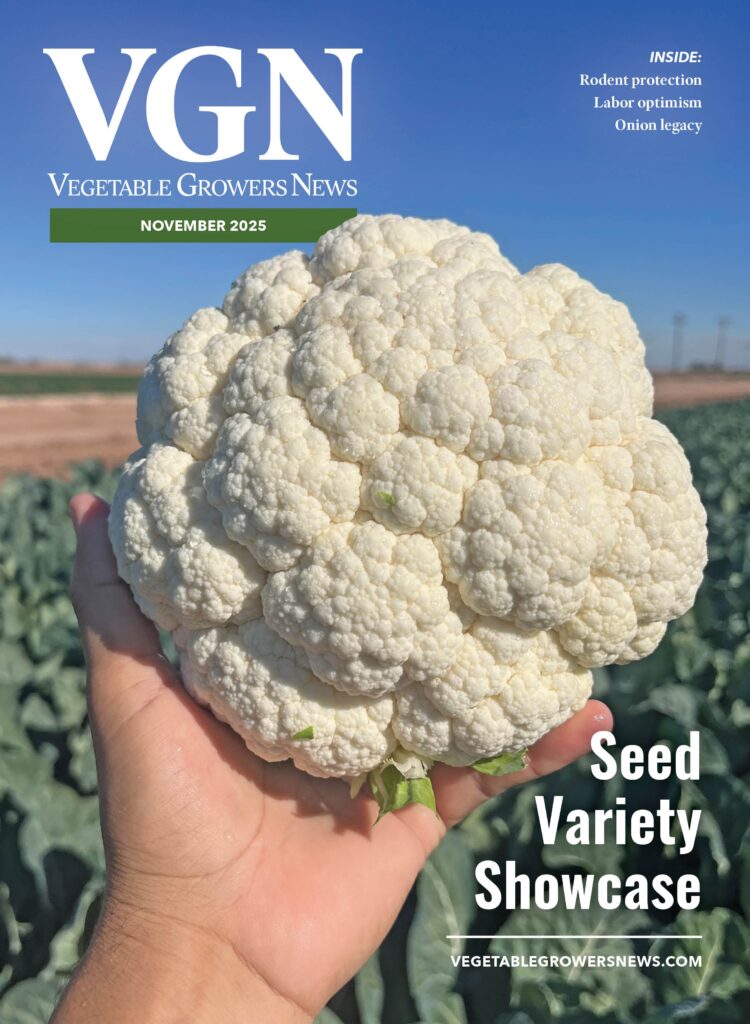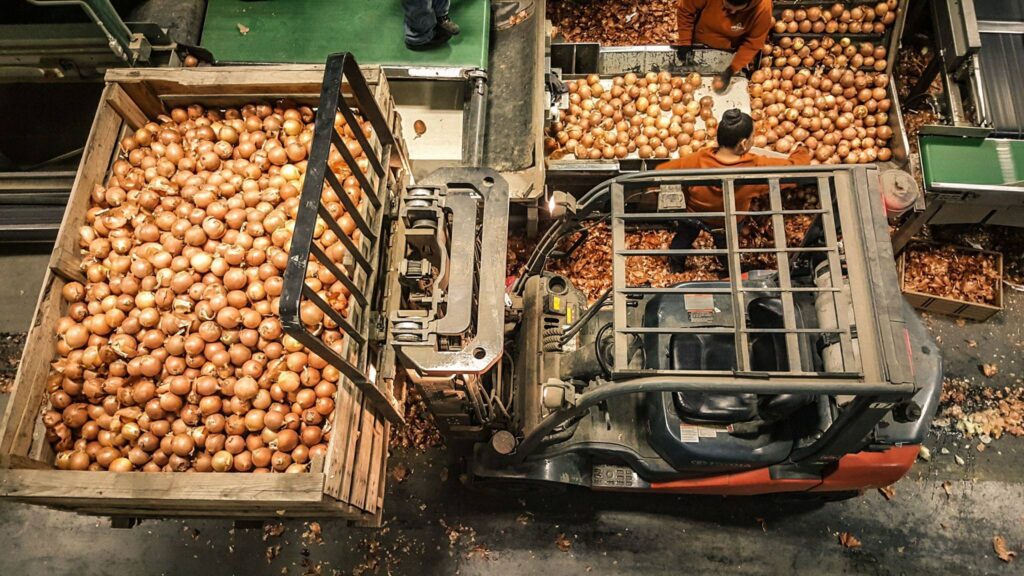
Oct 23, 2025Owyhee’s Idaho-Oregon onion, asparagus legacy
Taking its name from a band of Native Americans who helped shape the West, Owyhee Produce is a successful family growing operation.
Owyhee grows a variety of onions along the Idaho-Oregon Snake River border east of Nyssa, Oregon. It isn’t afraid to take risks with new crops and ventures — decisions that have helped shape the company’s success as a grower-shipper.
Owyhee, the name given to the Sandwich Islands, later known as Hawaii, means delightful, beautiful or satisfying. It also became the name of Idaho’ s Sandwich Island River — a tributary of the Snake River — as well as a mountain range and a band of Native Americans.
Onions are Owyhee’s main focus. The Treasure Valley’s hot days and warm nights create favorable growing conditions for onions, which include conventional and organic yellow, white, red and sweets. Owyhee also grows onions year-round on more than 1,600 acres across eight states. Onion sizes include medium, jumbo, colossal and super colossals.

Diversifying with specialty crops
Beyond onions, the Oregon-based farm also grows potatoes, asparagus, watermelon, sweet corn, mint oil, wheat, corn and sugar beets, plus some others used as crop rotations. About a dozen crops are rotated throughout its farms.
In 2020, Owyhee began growing sweet corn and watermelon. Adding new crops to a grower’s traditional lineup can be a struggle.
“Diving into new crops is a constant challenge with a steep learning curve, but we’re grateful for the flexibility to explore a range of crops,” Myers said. “We discover that there is always a learning curve with the new crops, but we see potential to continue with the crops and see what opportunities arise.”
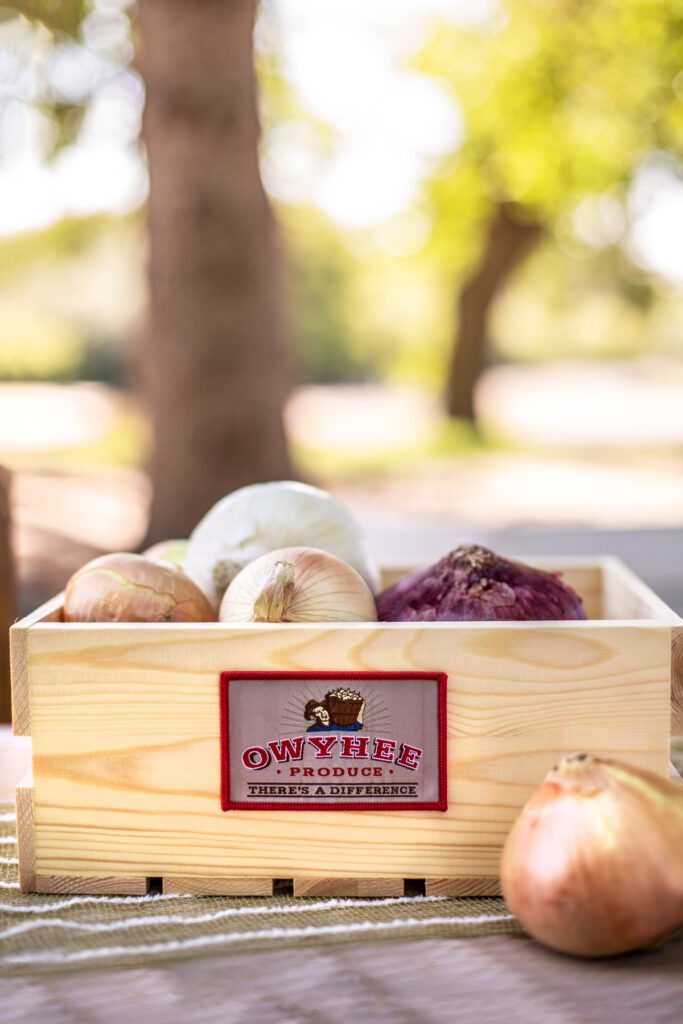 Asparagus is a more recent addition, as it is a labor-intensive crop that takes years to mature before it can be picked and sold. While many U.S. growers have been removing plantings, Owyhee touts Idaho asparagus for its superior flavor compared with import competitors.
Asparagus is a more recent addition, as it is a labor-intensive crop that takes years to mature before it can be picked and sold. While many U.S. growers have been removing plantings, Owyhee touts Idaho asparagus for its superior flavor compared with import competitors.
“Asparagus is a long-term investment, with no immediate returns in the first or even second year,” Owyhee CEO Shay Myers. “The extended time required for a robust production crop is a significant factor that contributes to the perception of asparagus as a challenging commodity.”
The labor required for asparagus production is another significant challenge, Myers said.
“Balancing the demands of picking, packing and shipping while adhering to stringent food safety regulations, all at a cost appealing to consumers, presents a large hurdle,” he said.
Consumer outreach
Owyhee hosts agritourism tours and events, with an asparagus festival designed to educate consumers in a fun way. Many local vendors highlight the crop through creating special products.
“We as farmers have to advocate for ag, or we will lose it,” Myers said. “We need to create a way to bridge the cap between producers and consumers, and this is a great way to do it.”
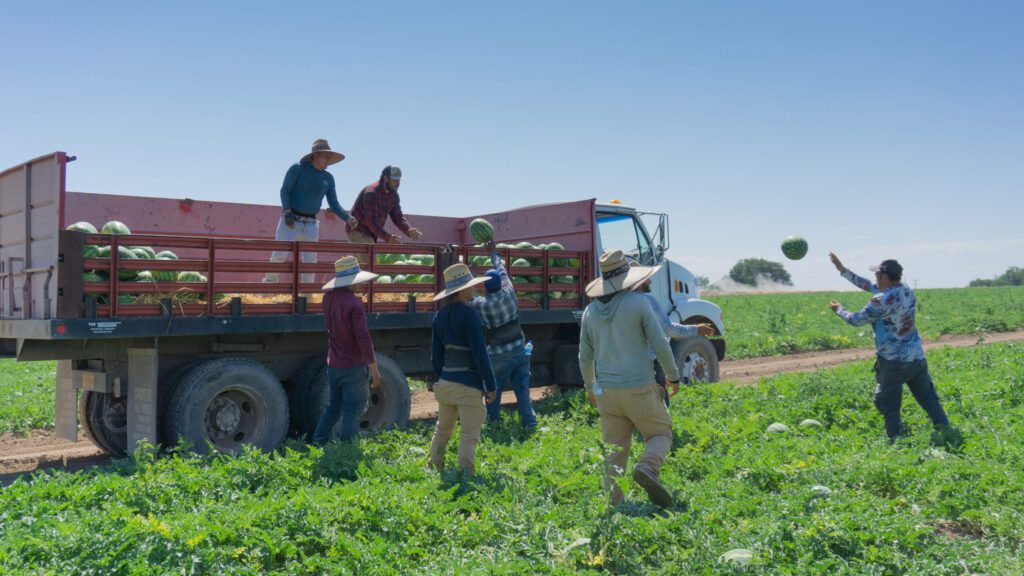
Mint oil and early ventures
Returning from the Korean War in 1954, Owen Froerer founded Owyhee with his wife Colleen by renting ground and equipment.
In 1973, Owen gambled growing the then-new mint crop and, in 1976, installed a mint distillery. Today, mint processing for oil is a large part of Owyhee’s operations.
“It was a competitive and expanding industry brimming with opportunities,” Myers said. “The success we achieved with mint in our early business years empowered us to take calculated risks, ultimately propelling us to where we stand today.”
Maintaining U.S.-grown mint in consumer products poses a challenge. While mint is a classic flavor, it lacks the novelty factor and isn’t the most cost-effective growing option. Still, mint stands out as a natural, healthier alternative to some of the more common artificial flavorings on the market, Myers said.
Sustainable farming practices
Because of climate change, farming is both harder and simultaneously more important than ever, he said. Weather extremes add additional risk for growers. Owyhee’s sustainable and climate-conscious farming help hedge against those risks.
Wishing to improve the land and increase its chances for survival, Owyhee works to reduce its environmental impact, Myers said. Owyhee’s control over all aspects of the process — from growing to packing, shipping and processing — isn’t often seen in other industries.
The recently introduced Buck Naked Whole Peel Onions line represents an initiative to reduce waste at the packing and retail levels. Selecting onions that may not meet retail visual standards, Owyhee’s whole peel line removes the imperfect outer layers and composts them to benefit the soil — marking a more sustainable approach to onion processing, he said.
“Farmers serve as exemplary stewards of the land, relying on the health of the soil for optimal yields and to maintain the land’s long-term productivity,” Myers said. “Balancing time, attention and collective effort, farmers are perpetually exploring sustainable practices to ensure the enduring health of their farms.”
Water conservation is also important.
“Drip irrigation and pivot irrigation systems have been crucial in creating effective watering systems in our area,” Myers said.
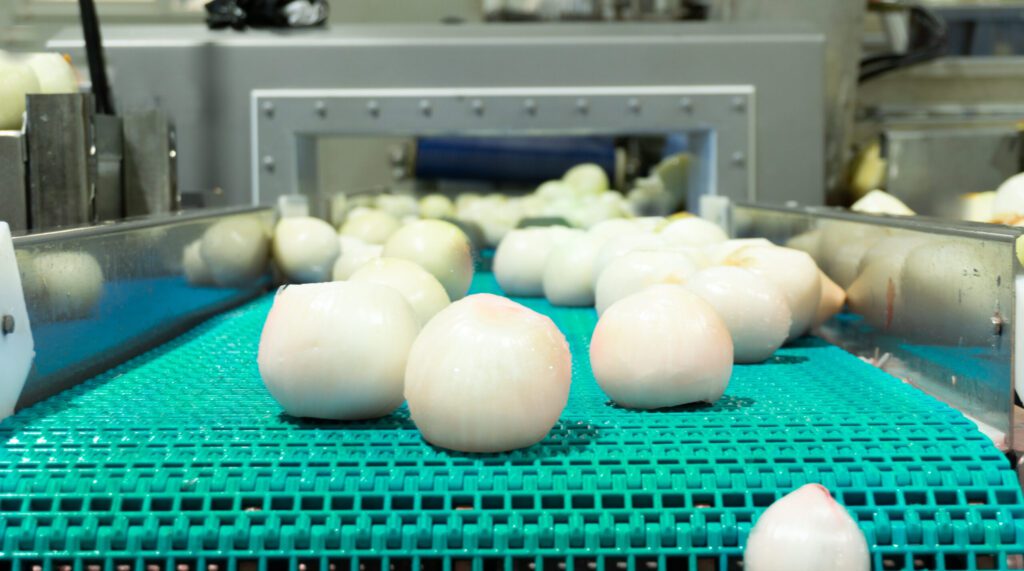
Family on the farm
Known as “Shay the Farm Kid” on social media, Myers is a third-generation farmer who promotes ag through a “Farming 101″ series. He’s joined by other family members including his grandmother Colleen and daughter Bailey, along with farm manager Craig and COO Robin Froerer.
“Returning to our family farm has always been encouraged as a means to collectively expand our opportunities,” Shay said. “While we enthusiastically welcome everyone back, our focus is on ensuring each individual finds the right role on our team, contributing their unique strengths to our success and finding fulfillment in their responsibilities.”
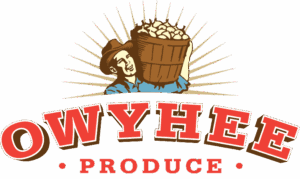 Family operations can, however, face challenges
Family operations can, however, face challenges
“Effective communication remains the lifeblood of our teamwork, especially within a close-knit work environment like ours, where coworkers are essentially family,” he said. “Constant and open communication is the key to operating seamlessly as a cohesive unit to be successful.”
Despite the challenges, growing produce and other crops remains rewarding for Owyhee.
“Working with family has its ups and downs, but at the end of the day, it’s like having a team that’s got your back no matter what,” Myers said. “It’s a rollercoaster, but the shared wins and the support make it all worthwhile.”
— Doug Ohlemeier, Assistant Editor















